By Uran Kalakulla
Part Eighteen
Nazism and Communism
Memorie.al / Nazism lasted 12 years, while Stalinism lasted twice as long. In addition to many common characteristics, there are many differences between them. The hypocrisy and demagogy of Stalinism was of a more subtle nature, which was not based on a program that was openly barbaric, like Hitler’s, but on a socialist, progressive, scientific and popular ideology, in the eyes of the workers; an ideology that was like a convenient and comfortable curtain to lie to the working class, to lull the sharpness of intellectuals and rivals in the struggle for power.
One of the consequences of this peculiarity of Stalinism is that the entire Soviet people, its best, most capable, hardworking and honest representatives, suffered the most terrible blow. At least 10-15 million Soviets lost their lives in the torture chambers of the KGB, martyred or executed, as well as in the camps of the Gulag and others like them, camps where it was forbidden to correspond (in fact they were prototypes of the Nazi death camps); in the mines in the ice of Norilsk and Vorkuta, where people died from cold, from hunger, from crushing work in countless construction sites, in the exploitation of forests, in the opening of canals and during transportation in lead-lined wagons, or in the flooded barns of the death ships.
Continued from the previous issue
What the hell had we done to deserve such a punishment? Perhaps our pardon of life was the fruit of the political conjuncture of the time, since in November 1962, the fiftieth anniversary of the Declaration of Independence fell and Enver Hoxha and his friends had decided to celebrate that November 28 with grandeur, driven by a “patriotism” that was only apparently “ardent” and “sincere”. Since at that time they had just broken with the Soviet Union, political interest demanded that they wear the clothes of nationalism, which for nearly two decades, they had fought fiercely. What else can I say?! I don’t know!
Some malicious people, in prison and outside it, had the opinion that all those who had been pardoned had signed to serve the State Security. I do not completely exclude such a thing, as painful as it is dirty: But, I can in no way accept that, every pardon of life, (a fact that was very rare in communist “justice”), was necessarily conditioned by such a farce! And this is easily proven.
Those who have the opportunity should open the files of all of us who have been subject to pardon of life, after the death sentence. Moreover, I told what and how happened to me in detail, without adding, without hiding anything, with the greatest sincerity, as well as with due honesty. Therefore, I do not fear at all, from any insinuation or slander of this nature. On the contrary, I despise them with indignation, on the one hand, and raise my head high, on the other.
With the “black general” and the “red prosecutor”!
A month and a half had already passed since my death, and I was still in the “death chamber,” except for my clothes and my hands were uncuffed. However, life was the same and my soul was becoming increasingly heavy. And now that I had “come back to life,” the longing for my family had begun to torment me even more, especially for my wife, my little son, and my elderly mother.
And one gloomy November day, when I least expected it, someone stopped walking in front of the door of my dungeon. The door opened and before my eyes reappeared (this time on foot), the “black general”, Nevzat Haznedari. He was dressed in an elegant suit and seemed even taller than he was. But, the same shaved head that I had seen almost a year and a half ago in the Durrës investigation office and the same look: investigative, frowning, and malicious. He spoke first:
– “Hey, did you save the cart”? – It was clear that he was talking about my head. I did not lower my head, but answered him bluntly:
– “I myself, neither convicted nor saved anything. You do everything yourself. But, since you have come, I wanted to ask you something. May I”?
– “Speak – he told me” – in that thick, heavy voice.
– “Mr. General, if you have decided to keep me locked up here, for the entire prison term that lies ahead of me, that is, for the rest of my life, then you have spared my life in vain. Because, as a prisoner that I am, like everyone else, don’t I also have the right to see my family, to receive and send letters, to read newspapers and books, which the command allows? Should I stay here all the time talking to myself? If you want me to go crazy, then you are still keeping me here in vain. Take me to a psychiatric hospital, or to the insane ward.”
– “We will get you out, we will get you out,” he said this time as if lazily.
– “But when?” – I insisted.
– “Here, in one of these coming days. But be careful that wherever you go, you must keep your mouth shut, because your tongue is full of poison. It can’t do anything to us, but it tightens the noose around your neck even more, because we find out everything. “Even where I will wear, we have our people”!
It was impossible to speak more clearly and honestly than he spoke. And I certainly understood him very well. That word of his was a lesson for me. That’s what the general said and passed on, I don’t know where else. The door closed and I remained there thoughtful, but with a happy spirit, because in a few days I would say goodbye once and for all to that damned dungeon that, for a moment, almost became my grave above the ground.
Not even two or three days had passed when, one morning, the door of my dungeon opened again with a noise and this time the silhouette of a man appeared before me, whom I had never seen before. He was a fat guy, with a red face and almost chubby cheeks, dressed in an elegant officer’s uniform and with the epaulets of a colonel. Without many words, he introduced himself to me, when he noticed in my gaze, more the expression of a question mark, rather than surprise:
– “I am Asaf Kondi,” he said, puffing up like a rooster, “the Military Prosecutor General.” Do you have any complaints or questions?
While the General of the Security had seemed to me this time like the black shadow of death, this face of this certain military prosecutor seemed to me like that of those wild, furious bulls, who do not hesitate to gore even the owners of the stables that feed them, and no longer the bullfighters of the strange Spanish sports arena. However, I asked him:
– “Mr. Prosecutor, as a seasoned jurist that you must be, I wanted to know from you whether, according to criminal procedure, an opinion, of whatever kind and whatever kind it may be, is punishable”?
Prosecutor Asafi thought for a moment noticed his eyebrows as if he wanted to strain his mind and replied emphatically:
– “No, it is not punishable”!
– “Well, since it is like this, according to the law in force, by what right did you sentence me to death and then to 25 years, after the pardon of life, only with the absurd accusation that I had intended to connect with the outside world, which was not true at all”?
Prosecutor Asafi, I don’t know, from the weight of the fat on his head or because my question confused him, as if his fat face blushed even more and he spoke angrily:
– “Yes, there are cases where he is even punished”. – He said this and left, while behind him, they closed the door angrily, slamming it hard, while I gave him a bad gas from inside, who wanted to mock the legal interpretation, on the part of this “red prosecutor” in his heart, as he was red in his face.
In the old prison of Tirana
About a week after the honorable visit of the “black general”, finally, they really took me out of that damned dungeon, called the “death chamber”, where I had endured all those physical and spiritual tortures. With the bundle of clothes on my back, through the narrow corridors, I went out into the courtyard behind the prison and, from there, through some other corridors, like a gallery, I reached the “salon” on the ground floor of the prison, where several doors led out. They were the doors of the rooms, which were otherwise called (perhaps since the time of the Turks), “kaushë”.
In my opinion, this name suited them better, because there the prisoners were packed (almost on each other’s backs by the narrowness), just like peanuts in a paper bag, which street vendors sell in the bazaar.
I noticed six rooms there. In room no. 1 (as I later learned), young people were kept locked up; in room no. 2, middle-aged men; in room no. 3, old men; Room no. 4 was an isolation room, where Bedri Spahiu was kept, accompanied by a known spy in the prison, named Ymer Ndroqi, and where Pjetrin was also put; Room 5 had been turned into a kitchen for the prisoners, with something like an oven along the wall, while Room 6 was also an isolation room, where the tails of the Teme Sejko trial were locked up, those who had escaped the shooting. In that corridor, there was a warehouse where the convicts kept their food and personal clothes, while on the other side; there was a W.C. along with a supposed bathroom for washing and bathing, of course, to make matters worse.
On the top floor of the prison, there was only one room, again for political prisoners, but they were foreigners and, to be fair, it was an ordinary prison. Thus, the regime was making fun of its very nature, its preferences: political prisoners below, ordinary ones above! You have no idea, every regime, or rather every system, has its own preferences even in prisons!
Having such a position, the corridor had no sunlight at all. Day and night, it had to have electric light. There, the humidity had its permanent headquarters, along with the ground. When I went out into that corridor and dropped my clothes on the ground, no guard, no captor caught my eye. But there, a young man appeared before me, tall, with a mustache like Hitler’s and with eyes that shone surprisingly brightly even in that semi-darkness.
But I noticed that that kind of brilliance, as if it had within it the wickedness of a bad man, not to say the devil himself. And this was clearly visible, both in the tone of his voice and in a devilish smirk, which I discerned at the corner of his thin lips. But what was this civilian, who gave orders and directed things where the place of the guard, the captain, should have been? Not long after, I found out that he was the head of the prison! A prisoner and head of the prison? And, moreover, convicted as an “enemy of the people”!
Why could the order of a political prison be entrusted to an “enemy of the people”? How was it possible for an “enemy” to control and supervise the flock of his comrades, also “enemies”? I had heard that even in the political prison, that is, among the “enemies of the people”, there were spies from their own contingent, but they were few, they could be counted on the fingers of one hand. But that such a person had risen to the rank of a captain of the Sigurimi, this had never occurred to me!
Sometimes even stronger than a captain, just because he lived there and was not allowed leaving the prison to go to dinner with his family. This work, in a word, was a kind of self-administration. So you would believe that Enver Hoxha and his security men, Tito’s economic self-administration, had already imprisoned him, but they were faithfully implementing it within the prison walls! Or was this another Soviet, that is, Stalinist, experience? Come and find out about these things!
The “enemy” head of the prison was called Adem Kalaja, as I later found out. He was originally from Preza, Tirana, but his family lived in Durrës. He had been a partisan, if I’m not mistaken with Beqir Balluk, but I don’t know why he had been in prison, as an enemy. Then he was released and this was the second time he had been inside, I still don’t know why. They said that he had done well in the first prison, and so had the beginning of the second, but then he had become a spy, both sophisticated and dangerous, taking many of his friends by the throat and sending them to Burrel.
And what’s more, from such a contribution, he had also become a kind of resident, that is, the recruiter and responsible for all the spies in the prison. It seems from this work, he had also taken on the task of the internal manager of the prison. Adem first put me in room no. 1 for the young people, which was also the largest room in that ground-floor prison. And there the young people in large numbers stood up and welcomed me very well, almost enthusiastically. It was clear that my work and that of my friends had ended there too. And immediately they narrowed down a bit and made a place for me too. They even started to fix my sleeping clothes.
There I met Tonin Prosi (who, as soon as he got out of prison, escaped to America, where he is still today); Miti Duma, a charming and healthy boy, from Durrës; Asqeri Kaun, small but lively, from Shijak; Skënder Peza from Tirana, whom I would have liked to have had, as he said, as a childhood friend and neighborhood friend; Milto Fështi, lonely, with a scarf tied around his shaved head, like all the rest of us; Mustafa Pepoş from Tirana, a jewel of honor and soul, and so on, full of others, some thirty or so young men.
I thought I would have a good time with those good guys, but not even half an hour had passed when the door opened again and Adem Kalaja, strict as a true captain, motioned for me to get up and go out into the corridor again, with all my clothes on. Then he took me and put me in room no. 2, with the older men. The reason? The roommates explained this change by saying that the operative did not want me to stay with the young men, because I could “spoil” them!
The new room for me was smaller, narrower. Even there, they stood up and welcomed me very well and made room for me by the wall, under the window. But when I lay down, I noticed that it must have been at least a palm or more below the level of the outer courtyard, because the humidity was coming from the foundation, from the cement, under my mattress.
The imprisoned partisan, Aqif Selimi
In room no. 3, of the old prison in Tirana, among others, I also met Aqif Selimi. He was from Peqin and had been there for several years. It is surprising how he had ended up in prison, a rare and paradoxical case. But, in the communist dictatorship, paradox was part of the system, almost its soul. But a tragic paradox, but!
Aqif was a man of average height, dark, lanky (more from hunger) and with a sanguine temperament. It seems that he harbored great spiritual energy in himself and, almost, every work and every conversation, he carried out with great passion.
Raised in poverty, fate had sewn this mess for him, to carry with him all his life. It was inseparable from him, like those dogs of Dante’s canticle of hell, by Pier Della Vigna, who, as furious as they are, do not separate themselves from sinful souls, to tear them apart with their bared teeth.
Usually the children of misery suffer a breakdown of their personality and then the soul is sucked into the world of crime, vice, shame, becoming naturalized in the dark and filthy recesses of human life. Aren’t drunkards, gamblers, swindlers, murderers, thieves, prostitutes, and all this gallery of dung of human society like that?
But, in this regard, Aqif was quite an exception, because in the depths of his soul, he had two basic elements: honesty as stable as granite and the ideal for the good, the right, and the magnificent. And it was precisely these powerful antidotes that made him rise above the small things, the meanness of poverty, of the world of misery. Even so, to the point that the poverty and constant misfortunes of his life, instead of overthrowing him, breaking his back under their cruel weight, made him even stronger than before, made him proud to stand with his head held high, full of dignity.
Still a young man, almost a teenager, in the service of good and justice, Aqif, deceived like many, who was still without the proper knowledge and experience, had fallen prey to communist ideology. And, driven by ardent patriotism, he had taken up his rifle and gone out to the partisan mountain, with the unwavering belief that he was serving a just cause: the liberation of the Homeland and the construction of a just, humane society.
But, immediately after the end of the War, while still a simple officer, he began to realize that his and his comrades’ war had been in vain and that he had sacrificed much for a great deception, a deception that now seemed obvious, because, instead of the quislings of yesterday, the new quislings ruled; instead of the absence of a foreign dictator, a local dictator now ruled, coming (what is worse), from the world of vice, gambling tables and prostitution beds.
There is no greater pain than the disappointment and desecration of the ideal in which you have believed as in God! Here is a misfortune of Aqif’s life, which was added to those he had suffered before and which he would continue to suffer afterwards, even to this day. Memorie.al




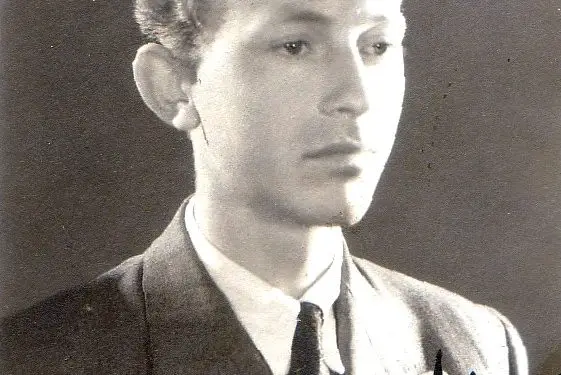
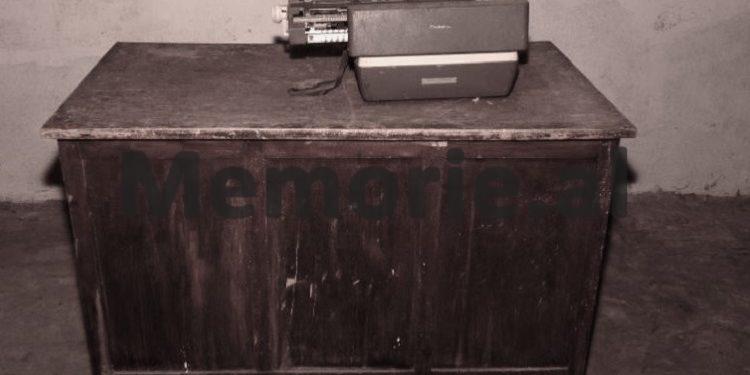
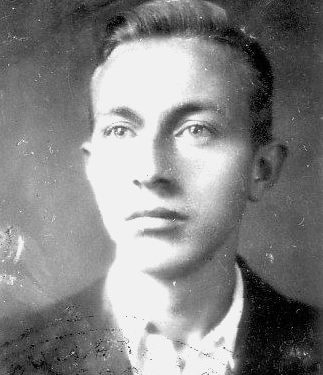
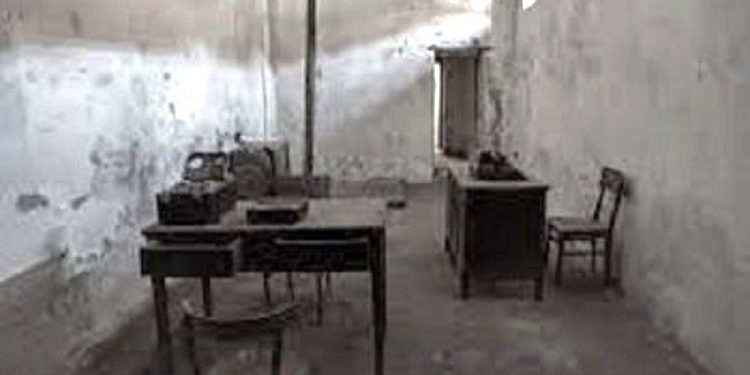
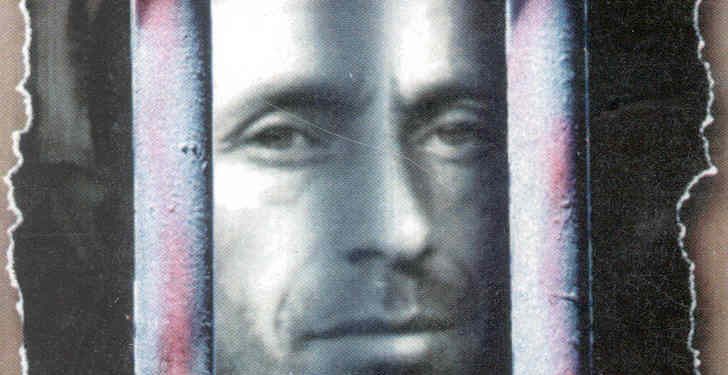
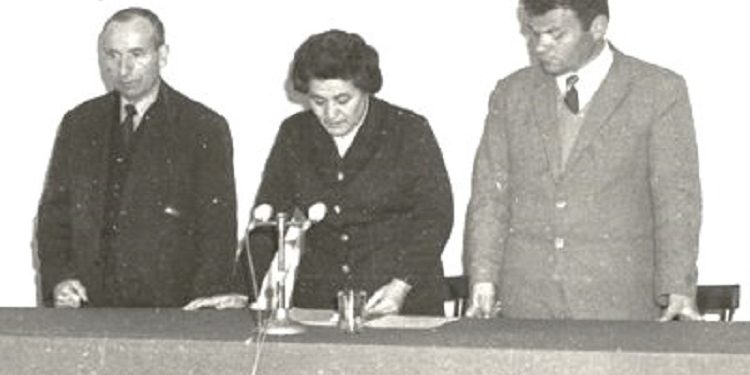
![“The ensemble, led by saxophonist M. Murthi, violinist M. Tare, [with] S. Reka on accordion and piano, [and] saxophonist S. Selmani, were…”/ The unknown history of the “Dajti” orchestra during the communist regime.](https://memorie.al/wp-content/uploads/2026/02/admin-ajax-3-350x250.jpg)
![“In an attempt to rescue one another, 10 workers were poisoned, but besides the brigadier, [another] 6 also died…”/ The secret document of June 11, 1979, is revealed, regarding the deaths of 6 employees at the Metallurgy Plant.](https://memorie.al/wp-content/uploads/2026/02/maxresdefault-350x250.jpg)




